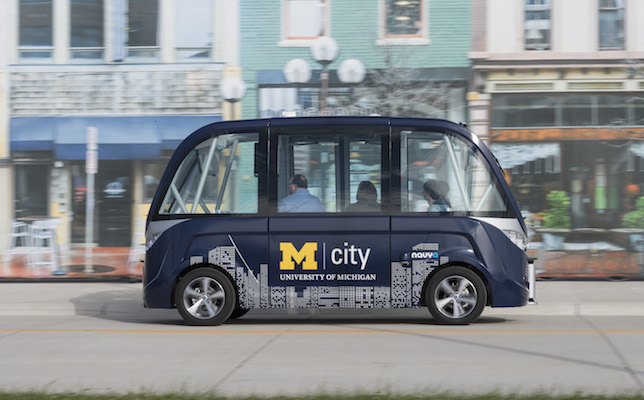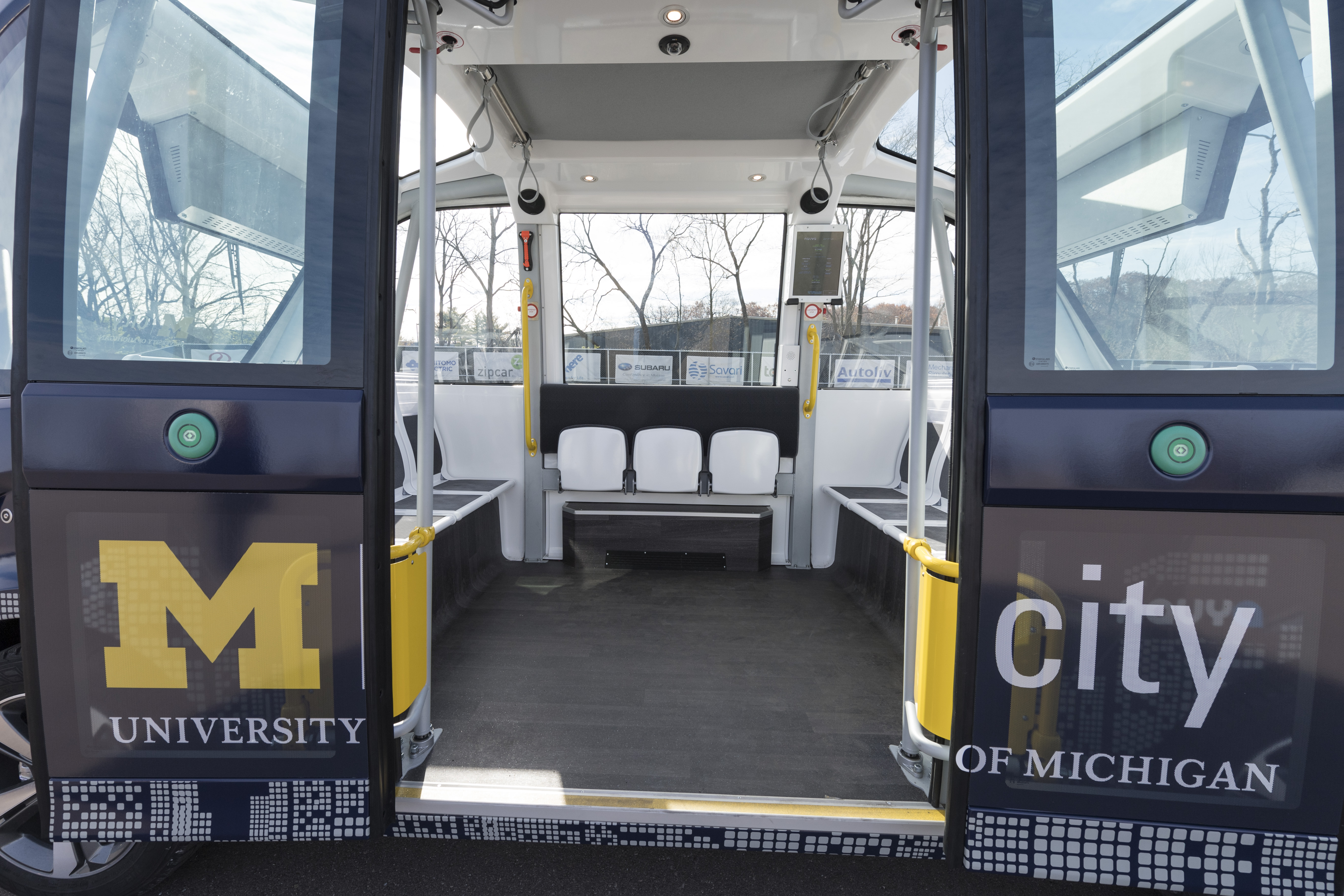U-M to Roll Out Driverless Shuttle Service This Fall

Images and videos courtesy of the University of Michigan.
Starting with the 2017-2018 fall semester, students and faculty at the University of Michigan (U-M) will be able to ride self-driving shuttles on a two-mile route stretching across the North Campus, which houses the university’s 32-acre connected and automated vehicle test site.
Mcity, as it is called, simulates the broad range of complexities vehicles encounter in urban and suburban environments. The test facility features roads, intersections, traffic signs, signals, streetlights, railroad crossings, sidewalks and even fake pedestrians. The upcoming free service for U-M students and faculty will begin with two 15-passenger, fully electric “ARMA” shuttles by French autonomous vehicle maker NAVYA, a university statement said.
Mcity opened in 2015 as the culmination of a public-private partnership between U-M’s Mobility Transformation Center; Michigan Traffic Laboratory academics and researchers; industry sponsors like BMW and Bosch; and government collaborators, all of which have invested more than $16 million to date. Mcity is working to fulfill one of the university’s goals: “design and demonstrate a mobility system that blends the latest thinking on connected transportation systems, autonomous vehicle design and other technologies with economic, social and policy considerations” by 2020, the Mobility Transformation Center website states.
The new driverless shuttle service aims to surface relevant data on “ridership and usage patterns, and survey users about their experience,” the university statement said.

Image: University of Michigan.
ARMA shuttles lack a steering wheel and pedals; instead, they operate autonomously and exchange location, speed and other data with each other via multi-sensor technology:
- LIDAR sensors that survey distances and enable precise positioning;
- GPS RTK (real-time kinematic) satellite navigation;
- Odometer to keep tabs on velocity; and
- Camera stereovision to detect obstacles and analyze the environment (road signs, lights, etc.).
"This first-ever automated shuttle service on campus is a critical research project that will help us understand the challenges and opportunities presented by this type of mobility service and how people interact with it," said Mcity Director Huei Peng, in the statement. "The shuttles will augment U-M's busy campus bus service to provide another mobility option."
In conjunction with U-M’s announcement, NAVYA revealed plans to open a manufacturing facility in Saline, MI, just south of U-M. The French company has already deployed ARMA shuttles in 45 cities worldwide and carried 170,000 passengers, according to its website. The deployment to U-M marks the first use of NAVYA ARMA in North America.
Learn more about Mcity on the U-M site.
About the Author
Sri Ravipati is Web producer for THE Journal and Campus Technology. She can be reached at [email protected].